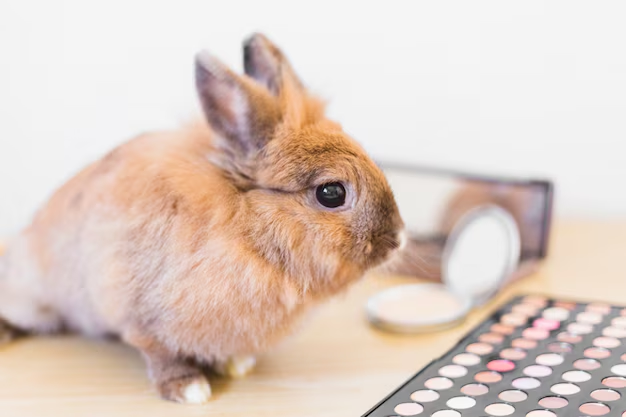Can Mice Really Sneak Into Your Refrigerator? Here's What You Need to Know!
Imagine this scenario: it’s the middle of the night, and you’re craving a midnight snack. You creep into the kitchen, open the refrigerator door, and there, nestled between your leftovers and fresh produce, is a tiny uninvited guest—a mouse! While this might sound like something out of a comedic cartoon, many people wonder if it's possible for a mouse to make its way into the cool confines of a refrigerator. Let's delve deep into this curious question from multiple angles to understand the possibility, implications, and how to address such a situation effectively.
How Do Mice Typically Get Into Homes?
Entry Points: The Mouse Houdinis
Mice are incredibly clever and persistent creatures, known for their ability to squeeze through openings as small as a quarter of an inch. Common entry points include:
- Cracks and Gaps: These may be found around doors, windows, and in the foundation of your home.
- Utility Openings: Gaps surrounding pipes, vents, and cables are prime real estate for curious mice.
- Doors and Windows: Even slightly ajar openings or poorly sealed spaces can be welcoming for a mouse.
Attraction Factors
Mice don't just roam around aimlessly; certain factors lure them into homes:
- Food Sources: Unsealed food, crumbs, and accessible pantries are irresistible magnets.
- Warmth and Shelter: Especially during cooler months, the warmth inside homes is appealing.
- Safety and Nesting: A quiet, undisturbed corner is ideal for nesting and raising young.
The Anatomy of Refrigerators: Is Entry Possible?
Understanding Refrigerator Design
Refrigerators are designed to be secure environments to keep food fresh and safe. However, certain features might unknowingly create vulnerabilities:
- Door Seals: Over time, rubber seals can wear out, causing gaps.
- Ventilation Grills: These vents allow for airflow but might be large enough for a determined mouse.
- Condenser and Drain Lines: Access points for maintenance could be potential entryways if not sealed.
Challenges a Mouse Faces
While mice are adept climbers and contortionists, certain elements within a fridge make it challenging for them:
- Cold Environment: Mice are less likely to remain in extremely cold environments for long durations.
- Smooth Interior Surfaces: Lack of grip can be a deterring factor.
What If a Mouse Does Enter Your Fridge?
Immediate Steps to Take
If you find a mouse in your fridge, it's essential to act promptly:
- Safely Remove the Mouse: Wearing gloves, gently guide the mouse out using a small container or call professional pest control.
- Discard Contaminated Food: Any items directly touched or gnawed should be thrown away.
- Thorough Cleaning: Use a disinfectant to clean the affected areas within the refrigerator.
Health Considerations
Mice are carriers of several pathogens and diseases:
- Hantavirus: Spread through droppings, urine, or nesting materials.
- Salmonella: Can contaminate surfaces and food sources.
Being aware of these health risks emphasizes the importance of maintaining a clean and sealed refrigerator environment.
Preventive Measures: Keeping Mice Out
Securing the Refrigerator
To minimize the likelihood of mice entering your refrigerator, consider these preventive strategies:
- Inspect Door Seals: Regularly check and replace worn or damaged seals.
- Seal Entry Points: Use steel wool and caulk to close gaps around visible ventilation grills.
- Regular Maintenance: Ensure any access points for maintenance are adequately sealed when not in use.
Household Tips to Deter Mice
To keep mice away from your kitchen and home in general:
- Store Food Properly: Use airtight containers for dry goods.
- Regular Sanitation: Keep countertops and floors free of food scraps.
- Natural Repellents: Consider using peppermint oil or ultrasonic deterrents to create an unfriendly environment.
Summary: Quick Tips to Keep Mice Out of Your Refrigerator 🐭🚫
- Regular Inspections: Check seals and vents to ensure they are intact.
- Proper Food Storage: Use sealed containers to minimize attractions.
- Home Maintenance: Seal any gaps or potential entry points in and around your home.
- Cleanliness: Maintain a tidy kitchen environment to deter mice.
Can Other Pests Get into Your Fridge?
While mice are a common concern, understanding how they might get into your refrigerator helps consider other pests like insects or small critters. The preventive maintenance for keeping mice out often works to deter other unwanted visitors.
Final Thoughts on a Foolproof Strategy
Preventing mice from accessing your refrigerator starts with making your home less welcoming and sealing off potential entry points. Regular maintenance, cleaning, and a watchful eye can go a long way in ensuring that your midnight snack remains uninvited guest-free.
By focusing on practical steps and understanding the challenges mice face, you can create a home environment that prioritizes cleanliness and safety, keeping all of your food secure. Armed with these insights and strategies, you are well-equipped to tackle any rodent-related concerns before they have the chance to materialize.

